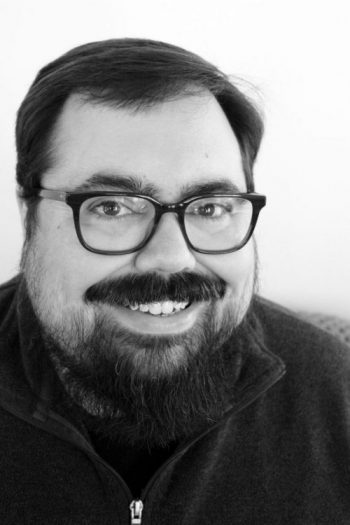Two weeks before the start of Fall classes, the Encyclopedia of Milwaukee’s Project Director, Dr. Joseph B. Walzer, sits in his office with an array of tabs open on his computer. While the halls of UWM’s History Department remain quiet in the dwindling summer break, Joe is busy navigating calendars, class schedules, student and faculty lists, grant requirements, to-do lists, spreadsheets, email, and a blues music playlist, mapping out a very important academic year for the Encyclopedia of Milwaukee. Over 2019-2020, EMKE will wrap up the remaining content its organizers initiated over a decade ago, officially “launch” the project with a series of programs and workshops, submit an application for a major grant from the National Endowment for the Humanities, and begin developing two new features that will help make EMKE a more effective teaching and learning tool (more on that at another time). Such an array of milestones requires a ton of creative planning, coordination, outreach, and know-how—precisely what Joe is here for.
Joe is just finishing his first year as EMKE’s Project Director, having been brought on in Summer 2018. Before this, he was the Associate Director of UWM’s Cultures and Communities program. Although Project Director is a new role for Joe, he is certainly not new to the project. Joe initially joined EMKE as a graduate assistant in 2013, and has written an impressive 34 entries for the Encyclopedia of Milwaukee! Joe was eager to rejoin the project and take on new responsibilities, including supervising undergraduate and graduate student workers, scheduling entries, publicizing new features, writing grant applications, coordinating development initiatives, and much more.
Joe has strong personal and professional ties to Milwaukee. Although he grew up in Fond du Lac, about 65 miles north of Milwaukee, he has deep family ties to the city. Both of his parents were born in Milwaukee and can trace several generations in the city. In fact, Joe is a direct descendant of Peter Juneau, the brother of Milwaukee founder Solomon Juneau, on his mom’s side. “Milwaukee history certainly loomed large in our family stories,” Joe recalls, and studying the city’s past has helped him understand his own family history.
Joe has committed his academic career to UW-Milwaukee. He majored in history and minored in art history while an undergraduate. As a Master’s student, Joe focused on issues of identity in Milwaukee’s working class history. His thesis, “Suds and Solidarity: Outdoor Leisure Spaces and Working Class Identities in Milwaukee, 1880-1925” is available at the UWM Libraries. As a PhD candidate, Joe’s research centered on issues of race, ethnicity, and urban history. Dr. Rachel Buff advised his dissertation, “Making an Old-world Milwaukee: German Heritage, Nostalgia, and the Reshaping of the Twentieth Century City,” which is available through the UWM Digital Commons. He is currently revising his dissertation for publication by a university press.
Joe is thankful for the opportunities his work as a graduate assistant and now Project Director for EMKE has provided to expand his knowledge of Milwaukee history. Among the entries he is most proud of researching and writing were on brewing, outdoor recreation, and food production. Joe explains, “Brewing was interesting because it is so ingrained in the city’s memory. Milwaukee’s beer barons—Pabst, Blatz, Schlitz, and Miller—are only part of the story, though, and I worked hard to fill out the narrative with some lesser-known pieces.” Food production and outdoor recreation were topics that, because of their breadth, created a fun challenge. According to Joe, “These are not obvious or well-documented stories, so I had to do some real digging to figure what the larger narratives were. In both cases, there was a lot to puzzle together—especially with outdoor recreation, which can be defined in so many different ways.”
Joe greatly believes in the mission of EMKE and the significant impact it can have. “Milwaukee is underappreciated for its centrality to the development of national trends and movements—both good and bad,” he explains. For Joe, the telling of history is a power that we need to use responsibly—in ways that benefit the public good. He writes, ”How we tell our histories and celebrate heritage can be great for thinking about and understanding identity; but the mirror side of that can be exclusionary. If celebrate ethnic heritage without simultaneously understanding how it can also prop up white privilege in Milwaukee, then we’re only perpetuating systems of segregation.” EMKE gives students and educators opportunities to practice navigating these connections between history and community, and think critically about the places they live. Joe believes this is what makes EMKE such a great resource. “In addition to more well-known stories, EMKE draws out the mundane aspects of everyday life that added up to experiences of power and subjectivity,” Joe notes. “It allows for Milwaukeeans of various backgrounds to understand that they have a place in the city, and that what they do can be historically impactful and important.”
So, if there was one thing that Joe wanted people to know about the Encyclopedia of Milwaukee, what would that be? “We envision this project as an ongoing dialogue with Milwaukeeans and their communities, and want people to engage EMKE as a dynamic resource. Please register and comment on the website! That will help us connect what we do with what Milwaukeeans need.”

0 Comments
Please keep your community civil. All comments must follow the Encyclopedia of Milwaukee Community rules and terms of use, and will be moderated prior to posting. Encyclopedia of Milwaukee reserves the right to use the comments we receive, in whole or in part, and to use the commenter's name and location, in any medium. See also the Copyright, Privacy, and Terms & Conditions.
Have a suggestion for a new topic? Please use the Site Contact Form.